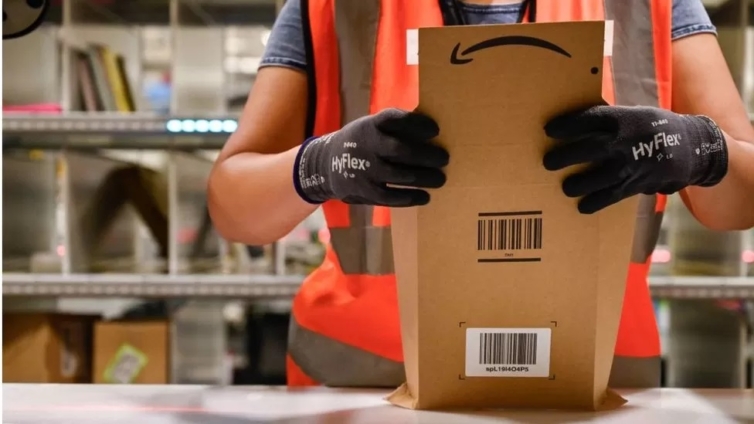US regulators have sued Amazon, alleging that the internet giant is illegally maintaining monopoly power.
The Federal Trade Commission (FTC) said Amazon uses "a set of interlocking anticompetitive and unfair strategies" to push up prices and stifle competition.
Amazon said the lawsuit was "wrong on the facts and law, and we look forward to making that case in court".
It is the latest technology giant to be sued by US regulators.
The FTC's boss, Lina Khan, has had Amazon in her crosshairs for years.
In 2017, Ms Khan, then only 29, published a major academic article arguing the online retailer had escaped anti-competition scrutiny.
"With its missionary zeal for consumers, Amazon has marched toward monopoly," she said at the time.
Since her surprise appointment as FTC Chair in 2021, this case has been widely expected - and viewed as a crucial test of her leadership.
The dominance of a handful of powerful tech firms has led some US politicians to call for action that would promote more competition in online search, retail and social media.
However, the FTC under Ms Khan has had little to show for its strong rhetoric against Big Tech.
In February it lost its attempt to stop Meta from buying VR company Within.
And in July it lost an attempt to block Microsoft from completing its deal to buy the maker of Call of Duty.
There is pressure on Ms Khan to make at least one high-profile complaint stick - and at the FTC they have high hopes for this case.
The agency, along with 17 state attorneys, claims that Amazon is a "monopolist" that stops rivals and sellers from lowering prices.
The regulator also alleged the internet giant's actions "degrade quality for shoppers, overcharge sellers, stifle innovation, and prevent rivals from fairly competing against Amazon".
However, Amazon says that if the "misguided" FTC lawsuit is successful, it would mean fewer products to choose from, higher prices, and slower deliveries for consumers.
The key part of the case involves consumers losing money - getting worse deals - because of the alleged monopoly.
US anti-competition legislation is complicated, but generally, prosecutors have to show companies have acted in a way that hurts consumers financially.
That isn't always an easy thing to prove when it comes to Big Tech, as many of their services are free - like Google's search engine or Meta's Instagram.
Earlier this month, a court battle began between Google and the US government, which has accused it of having an advertising technology monopoly.
Latest Stories
-
Livestream: Newsfile discusses KPMG report on SML deal, ILO on SSNIT reserves and NDC’s running mate
20 mins -
Ghanaian activist hugs over 1,100 trees in an hour to set Guinness World Records
21 mins -
Mathew Anim Cudjoe’s Dundee United promoted to Scottish Premiership after Championship win
23 mins -
NSMQ star Jochebed Adwoa Sutherland sweeps 12 awards at UG Vice-Chancellor’s Ceremony
1 hour -
Ghana’s Education Quality ranked 125 out of 183 countries in latest Global Youth Development Index
2 hours -
Emma Stone wants people to use her real first name
2 hours -
FIFA Club World Cup 2025: Sundowns, Esperance join Al Ahly and Wydad as CAF representatives
6 hours -
CAFCL: Al Ahly set up historic final with ES Tunis
6 hours -
We didn’t sneak out 10 BVDs; they were auctioned as obsolete equipment – EC
10 hours -
King Charles to resume public duties after progress in cancer treatment
10 hours -
Arda Guler scores on first start in La Liga as Madrid beat Real Sociedad
10 hours -
Fatawu Issahaku’s Leicester City secures Premier League promotion after Leeds defeat
11 hours -
Anticipation builds as Junior Speller hosts nationwide auditions
11 hours -
Etse Sikanku: The driver’s mate conundrum
12 hours -
IMF Deputy Chief worried large chunk of Eurobonds is used to service debt
12 hours

